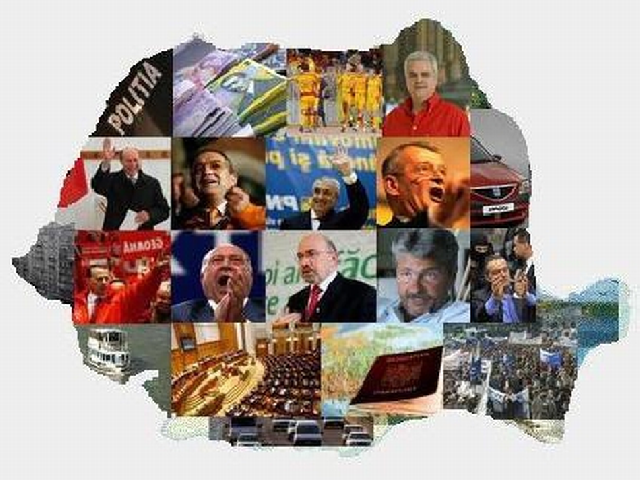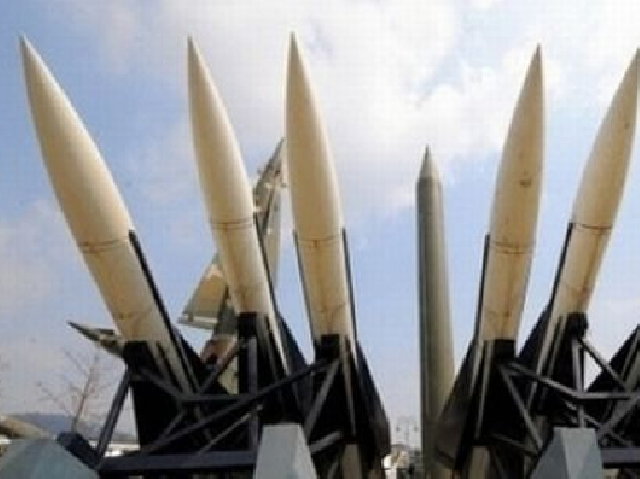A historic moment for Romania
On Thursday, the Aegis Ashore missile defence facility
was opened in Deveselu, southern Romania. The event was attended by the NATO Secretary
General Jens Stoltenberg and the US Deputy Secretary of Defence, Robert Work.
The shield is aimed at strengthening Euro-Atlantic Security, adding to NATO’s
other anti-missile defence capabilities, such as the high-performance radar in
Turkey and a command and control system in Germany. A second such facility is
due to be built in Poland and will be rendered operational in 2018. The
facility in Deveselu is designed to respond to potential ballistic threats,
especially from the Middle East. The shield does not target any country in
particular, as the Romanian Prime Minister Dacian Ciolos stressed:
The Deveselu Facility is a means destined exclusively for
legitimate defence against ballistic missile threats. It strengthens the NATO
missile defence capabilities and expands the coverage and protection area for
the Allied countries in Southern and Central Europe, thus significantly
reducing the risk of potential attacks with ballistic missiles from outside the
Euro-Atlantic space.
Moscow sees the anti-missile defence shield as a threat,
condemning the opening of the Deveselu facility and announcing it would
strengthen its own military capabilities.
The disinfectants scandal
The technocratic Government in Bucharest, which came to
power some six months ago, is facing a new crisis. Earlier this week, Health
Minister Patriciu Achimas Cadariu tendered his resignation amidst a new
large-scale scandal regarding the use of diluted disinfectants in hospitals.
Prime Minister Dacian Ciolos, who is now the interim Health Minister, said
healthcare was a priority of his term in office:
I want to use the next six
months to take other structural measures which, even if they don’t
systematically reform the healthcare system, will at least dig up and clarify some of the problems. I
want to assure everyone that I will not hide anything, and I will not neglect
anything.
According to Prime Minister Ciolos, over the last six-seven
years Romania has had at least 10 Health Ministers, none of whom seemed capable
of reforming the system, leading to a string of scandals in recent months.
IMF recommendations for Bucharest
The executive board of the
International Monetary Fund has examined the report of its latest assessment
mission to Romania in March. On Wednesday, the IMF submitted a number of
recommendations to Bucharest authorities. The Fund argues in favour of
continuing reforms aimed at redressing the economy and attracting investors.
The IMF expects an economic growth of over 4% in Romania this year, and of 3.6%
in 2017. Experts say the economy is on an upward cyclic trend, supported by the
recent salary increase in the public sector and the VAT slash, which have
boosted private consumption. In its recommendations submitted to the Government,
the IMF signals that the current premises for growth cannot be sustained in the
absence of reforms. IMF experts have recommended the authorities to stop giving
in to social pressure. At present, Romania has no ongoing agreement with the
IMF.
150 years
since the establishment of Romanian monarchy
On May 10,
Romania celebrated King’s Day, which has this year become a national holiday.
May 10th has a triple significance for Romania. On May 10, 1866,
Carol I became ruler of Romania. 11 years later, also on May 10, Romania gained
its independence and in 1881, on May 10, Romania became a kingdom. Events were
held in Bucharest and in the mountain resort of Sinaia to mark these
celebrations. Prince Radu told Radio Romania about the importance of monarchy
in the history of Romania:
There were countries who did better than us at the time.
But if you take a look and compare the great hardships that we had to endure in
the last centuries, the fact that 150 years later we are all part of the European
Union, and that the Royal House is close to the people, enjoying their respect
and confidence, is a miracle. It is one of the reasons that makes each of us
proud.
Romanian productions competing in Cannes
Romanian
cinematography is again shining at the Cannes International Film Festival,
which the French newspaper Telerama sees as a joker card for Romanians, who
are genuinely valued in Cannes.Le Mondeis praising Cristi
Puiu’s feature Sieranevada, which it describes as a classic ballet, a symphony
of movement. Part of the official selection, the feature is competing for the
Palme D’Or and was screened on Thursday. Cristian Mungiu is for the third time
competing for the Grand Prize with his latest film Graduation. Another
three Romanian productions are competing in Cannes: Bogdan Mirica’s Dogs,
which is running in the Un Certain Regard section; 4:15 PM. The End of the
World, directed by Catalin Rotaru and Gabi Virginia Sarga, competing in the
short film section, while Alexandru Badea’s All Rivers Flow into the Sea
is competing in the Cinefondation section.
Great achievement for Romanian handball
Last Sunday
Romanian champions CSM Bucharest made history in Budapest. At its first ever
participation in Champions League, the team won the trophy after a dramatic
final against the odds-on favourite Gyor of Hungary. Seen as underdogs, CSM
fought tooth and nail to win the match 29-26 at the penalty shootout. CSM thus
becomes the third Romanian team to win the most important inter-club
competition, after Stiinta Bacau in the 1960-1961 season and Rapid Bucharest in
the 1963-1964 season.

